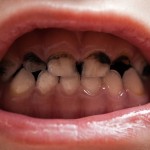
Early childhood caries (ECC) a common childhood disease that disproportionately affects poor and minority children (<6 years of age). Oral Candida albicans has been detected in children with early childhood caries (ECC) and has been shown to demonstrate cariogenic traits in animal models of the disease. Although in other studies no positive correlation with caries in children has been demonstrated, while some have suggested potential protective effects as a commensal organism.
The aim of this review is to evaluate whether oral detection (saliva, plaque, and oral mucosal swab) of C. albicans is associated with ECC.
Methods
Searches were conducted in the PubMed, Embase, Scopus, Web of Science, LILACS, Cochrane Library, and ClinicalTrials.gov databases. Randomised controlled trials, nonrandomised controlled trials, quasi-experimental, before and after studies, prospective and retrospective cohort studies, case-control and analytical cross-sectional studies that examined the oral presence of C. albicans in children (age <72 months), with or without ECC were considered.
Independent reviewers selected studies abstracted data and assessed quality using the Quality Assessment Tool for Observational Cohort and Cross-Sectional Studies and rated as good, fair, poor. A fixed effects model (Mantel-Haenszel estimate) was used for meta-analysis, and the summary effect measure was calculated by odds ratio (OR) and 95% confidence interval (CI).
Results
- 15 studies (all cross-sectional) were included.
- 6 studies were assessed as good and 9 as fair.
- A range of different diagnostic criteria were used across the studies.
- 12 studies had a higher C. albicans prevalence in ECC children.
| C. albicans prevalence | ||
| ECC children | Caries free children | |
| Saliva | 24 – 100% | 10 – 100% |
| Plaque | 44 – 80% | 7 – 19% |
| Swab samples | 14.7 – 44% | 6 – 7% |
| Caries lesions | 60 – 100% | N/A |
- Meta-analysis (9 studies) indicated a significantly higher ECC experience in children with oral C. albicans than those without C. albicans OR = 6.51 and 95% CI = 4.94-8.57, (p < 0.01).
- The odds of experiencing ECC in children with C. albicans versus children without C. albicans were 5.26 for salivary, 6.69 for plaque, and 6.3 for oral swab samples
Conclusions
The authors concluded: –
The evidence presented in this systematic review indicates that the prevalence of C. albicans in children with ECC is significantly higher than in caries-free children. In addition, children with oral C. albicans have higher odds of experiencing ECC compared to children without C. albicans. Further prospective observational cohort studies are needed to strengthen the evidence supporting the association between oral C. albicans and ECC, and to determine whether or not Candida detection can serve as a reliable risk factor or risk indicator for the development of ECC/S-ECC.
Comments
This well conducted review demonstrates a significantly higher prevalence of C. albicans in children with ECC the findings need to be interpreted cautiously as highlighted by the authors. All the included studies are cross-sectional so in the absence of prospective studies it is unclear whether C. albicans has a causative role. It is possible that C. albicans presence is merely a consequence of the development of ECC. The included studies had small sample sizes and clinical sampling and processing of C. albicans samples can also affect outcomes.
Links
Primary Paper
Xiao J, Huang X, Alkhers N, Alzamil H, Alzoubi S, Wu TT, Castillo DA, Campbell F, Davis J, Herzog K, Billings R, Kopycka-Kedzierawski DT, Hajishengallis E, Koo H. Candida albicans and Early Childhood Caries: A Systematic Review and Meta-Analysis. Caries Res. 2018;52(1-2):102-112. doi: 10.1159/000481833. Epub 2017 Dec 21. PubMed PMID: 29262404; PubMed Central PMCID: PMC5828948.
